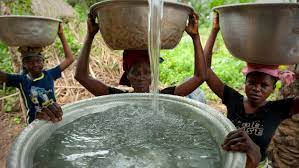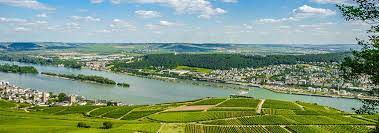We are blessed with a rich array of natural resources including water resources which provide the basis for national development. Consequently, the conservation and management of this wide variety of resources are crucial to sustainable development.
Water Resource
Water keeps us alive, moderates climate, sculpts the land, remove and dilutes wastes and pollutants and is recycled by the hydrologic cycle. Water covers 71% of the earth’s surface. Of this, 97.5% is the salty water of the oceans and only 2.5% is fresh water, most of which is locked up.
The remaining freshwater is found in glaciers, lakes, rivers, wetlands, the soil, aquifers and atmosphere. Ocean circulation patterns have a strong influence on climate and weather and, in turn, the food supply of both humans and other organisms.
It is used for household purposes, irrigation, transport, for producing tidal energy etc. Water is also used in many industries like textiles, iron and steel, paper etc. Tides result in rise and fall of sea water which can be harnessed to produce electricity.
Despite its importance, water is one of our most poorly managed resources. We waste it, pollute it and charge too little for making it available. This encourages still greater waste and pollution of this renewable resource, for which we have no substitute.
The world’s fresh water supply is continuously collected, purified, recycled and distributed in the solar- powered hydrologic cycle. This magnificent water recycling and purification system works well as long as we do not over load water systems with slowly degradable and non- degradable wastes or withdraw water from underground supplies faster than it is replenished. In parts of the world, we are doing both of these things.
Over the years, rising population, increasing industrialization and expanding agriculture have pushed up demand for water. Efforts have, therefore been made to collect surface water by building dams and reservoirs and creating ground water structures such as wells, tube wells etc. to tap ground water.

The precipitation that flows across the earth’s land surface and into rivers, streams, wetlands, lakes and estuaries that does not return to the atmosphere by evaporation is called surface runoff.
The region from which surface water drains into a river, lake, wetland or other body of water is called its watershed or drainage basin.
Two- thirds of the world’s annual runoff is lost by seasonal flood and it is not available for human use. Major water problem in arid and semi arid areas is shortage of runoff caused by low precipitation, high evaporation and recurring prolonged drought.
A 2003 study by the United Nations found that one of every six people does not have regular access to adequate and affordable supply of clean water. By 2050, this number could increase to at least one of every four people.
Read Also : City and Environmental Degradation
Poverty also govern access to water even when a plentiful supply of water exist as most of the world’s 7.7 billion people living on less than $1 (U.S) per day cannot afford a safe supply of drinking water and so live in hydrological poverty.
Most are cut off from municipal water supplies and must collect water from unsafe sources or buy water often from polluted sources from water vendors at high prices.
In water short rural areas in developing countries, many women and children must walk long distances each day carrying heavy jars or cans to get a meager and sometimes contaminated supply of water.

